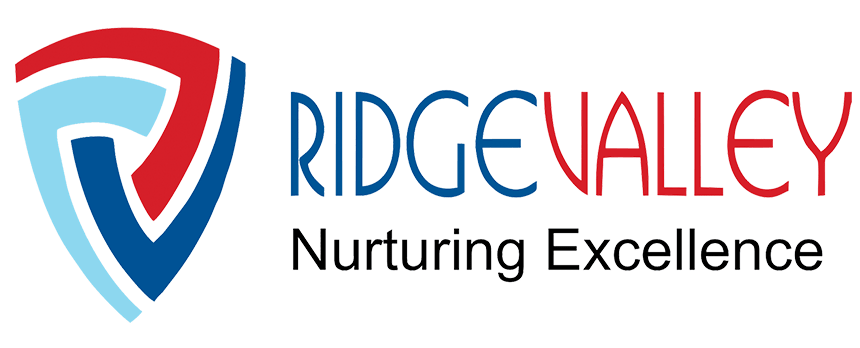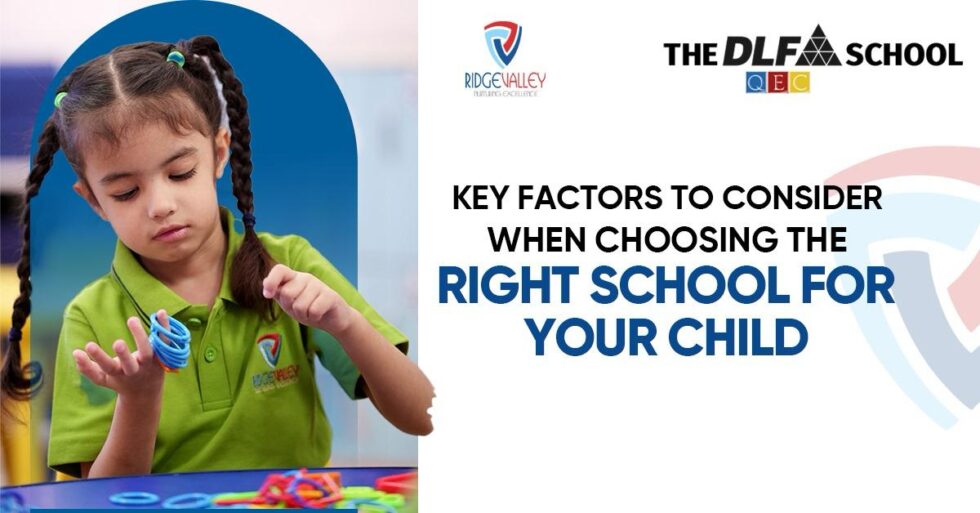Introduction:
When choosing the right school for your child, there are several critical factors that parents must consider to ensure their child’s success and well-being. At Ridge Valley, the Top Schools in Gurugram where selecting the right educational institution is one of the most important decisions you’ll make as a parent, as it will shape your child’s academic journey and personal growth. With a multitude of options available in today’s education landscape, it is essential to make an informed decision. Below are some key factors to guide you through the process of choosing the best school for your child, with a focus on aspects that align with the educational needs and aspirations of children.
About Us:
At Ridge Valley School, we believe that choosing the right school for your child is a decision that will shape their future. Our school offers a well-rounded education, focusing on both academic excellence and personal development. We understand that every child has unique needs, and our experienced faculty is committed to providing personalized attention to ensure that each student thrives. Our diverse curriculum includes a rich array of extracurricular activities, from sports to music, arts, and technology, designed to nurture your child’s talents beyond the classroom. Events like the annual sports meet, cultural festivals, and inter-school competitions foster teamwork, leadership, and creativity. Our state-of-the-art facilities and nurturing environment allow students to flourish, both academically and socially. At School, we are dedicated to shaping future leaders by offering a holistic educational experience that prepares students for both academic success and personal growth.
1. Curriculum and Academic Offerings
The curriculum is one of the first factors to consider when choosing a school for your child. Each educational system has its own set of standards and teaching methods, which can affect the learning process. For instance, the CBSE, ICSE, and international curricula such as the IB and Cambridge offer different approaches to education, including the depth of subject coverage, extracurricular opportunities, and teaching methodologies.
- CBSE (Central Board of Secondary Education) focuses on a more traditional and structured approach to education, with an emphasis on examinations. It is widely accepted across India and offers a balanced academic framework for students.
- ICSE (Indian Certificate of Secondary Education) offers a more detailed and comprehensive approach to various subjects, providing in-depth knowledge and critical thinking opportunities, making it ideal for students seeking a rigorous academic environment.
- International Baccalaureate (IB) and Cambridge International Examinations (CIE) are globally recognized programs that focus on research, inquiry, and critical thinking. These programs are often preferred by families who are considering higher education options abroad.
Understanding the type of curriculum offered by the school and how it aligns with your child’s learning style and future academic aspirations is key to making the right choice.
2. School Infrastructure and Facilities
A well-equipped school with state-of-the-art facilities can greatly enhance your child’s learning experience. Modern classrooms, technology integration, and availability of resources like libraries, science labs, sports facilities, and arts centers play a significant role in developing well-rounded students.
- Classrooms should be spacious, well-ventilated, and equipped with the latest educational tools to support interactive learning.
- Technology Integration is becoming increasingly important in today’s world. Schools that utilize technology for teaching and learning can provide your child with better engagement and access to global resources.
- Sports Facilities are also crucial in promoting physical health and teamwork. A school with a variety of sporting activities and well-maintained facilities will ensure that your child can develop physically and mentally.
- Arts and Culture – Look for schools that offer a wide range of extracurricular activities, such as drama, music, and dance, which help in the emotional and social development of your child.
The school’s physical infrastructure should be conducive to creating an environment where your child can thrive academically and personally.
3. Faculty and Teaching Quality
The quality of teaching is a pivotal factor in determining the overall learning experience of your child. Highly qualified and experienced teachers can make a significant impact on your child’s academic growth and emotional well-being. It is important to consider:
- Teacher-Student Ratio – A lower teacher-to-student ratio typically allows for more personalized attention, fostering better learning opportunities and stronger teacher-student relationships.
- Teaching Methods – Look for schools that focus on interactive and student-centered learning. Innovative teaching methodologies, such as project-based learning, inquiry-based learning, and experiential learning, promote critical thinking and creativity.
- Continuous Teacher Development – Schools that invest in ongoing professional development for their teachers ensure that their staff remains updated with the latest teaching techniques and educational trends.
Choosing a school with qualified, passionate, and trained educators will provide your child with the guidance and mentorship needed to succeed academically and personally.
4. School Culture and Values
The school’s culture and values will influence your child’s growth, both inside and outside the classroom. The environment should be one where your child feels supported, respected, and motivated to excel. Look for schools that:
- Promote Positive Behavior – Schools that emphasize good values such as honesty, responsibility, and respect, alongside academic achievement, ensure that children learn to become responsible citizens.
- Inclusion and Diversity – A school that values diversity creates an environment where children from different backgrounds feel welcome and valued. Schools with a diverse community allow students to develop tolerance, respect, and empathy.
- Holistic Development – Schools that focus on holistic development help your child grow emotionally, socially, and academically. This is important for children’s overall development and well-being.
When evaluating a school, consider its approach to student welfare, discipline policies, and the focus it places on fostering a sense of community.
5. Location and Accessibility
While this might seem like a logistical concern, the location of the school plays an important role in your daily routine and your child’s overall convenience. Schools that are located closer to home can help in reducing commuting time, which is essential for ensuring your child has time for other activities, such as sports, hobbies, and family time.
- Transport Services – Many schools offer bus services or transportation facilities to ensure that children can commute safely and conveniently.
- Proximity to Amenities – Schools near healthcare facilities, libraries, and recreational centers can provide extra assurance in case of emergencies or if your child needs extra resources.
Choosing a school that is conveniently located will ease the daily routine and help maintain a balanced lifestyle for your child.
6. Reputation and Reviews
The reputation of a school is an important consideration, as it can reflect the quality of education and the overall experience provided. A school’s reputation is shaped by its history, achievements, and the success stories of its alumni. It is crucial to gather insights about the school from:
- Parent and Student Testimonials – Feedback from other parents and students can give you a clearer picture of the school’s strengths and weaknesses.
- Academic Achievements – Look for a school that consistently produces excellent academic results, both in school exams and external assessments. School rankings and accolades can also give you an indication of its quality.
- Alumni Success – Researching the accomplishments of alumni can also provide valuable insights into how the school has helped shape their future.
By researching a school’s reputation and gathering testimonials from existing students and parents, you can gain a better understanding of what the school can offer to your child.
7. Fees and Affordability
The cost of education varies greatly across schools, and while high fees are not always indicative of better education, it is important to consider your family’s budget when choosing a school. The fees charged by the school should be in line with the facilities, curriculum, and services offered. Some schools offer:
- Scholarships and Financial Aid – If you are concerned about the cost, check if the school provides scholarships or financial aid to support students from families with lower incomes.
- Transparency in Fees – Choose a school that provides clear details about the fee structure and does not have hidden charges.
Ensuring that the school’s fees are affordable and align with your family’s budget will prevent unnecessary stress and allow you to focus on your child’s education.
8. Parental Involvement
An essential factor in a child’s education is the involvement of parents. Schools that encourage and facilitate parental involvement tend to have a stronger sense of community and collaboration. Some ways in which schools encourage parental involvement include:
- Regular Parent-Teacher Meetings – These meetings are a great way for parents to stay informed about their child’s progress and address any concerns.
- School Events – Schools that hold regular events, such as workshops, cultural programs, and community outreach, provide parents with the opportunity to engage actively with the school.
- Open Communication – A school that maintains open lines of communication with parents helps ensure that any issues or concerns are addressed in a timely and supportive manner.
Look for schools that encourage and value parental participation in their child’s education, as this will create a supportive learning environment.
Conclusion:
Choosing the right school for your child is a decision that will have long-lasting effects on their education, development, and future. At Ridge Valley, the Best School in Gurgaon where by carefully considering factors such as the curriculum, faculty, school culture, facilities, and affordability, you can ensure that your child is placed in an environment that nurtures their academic success, personal growth, and overall well-being. Make sure to research thoroughly, visit schools, and talk to other parents to ensure that you make an informed choice that is best suited to your child’s needs.











